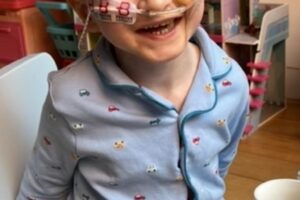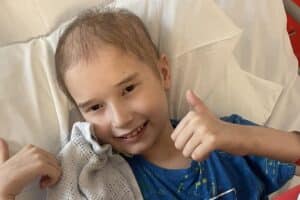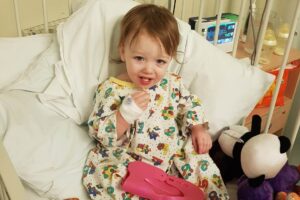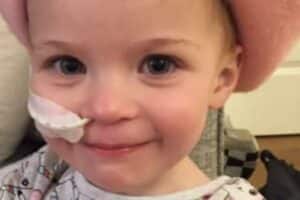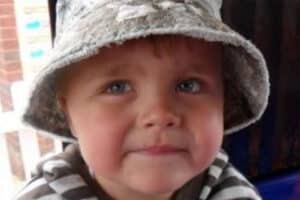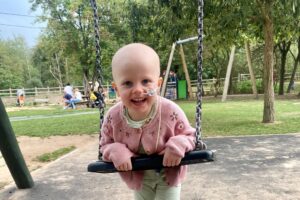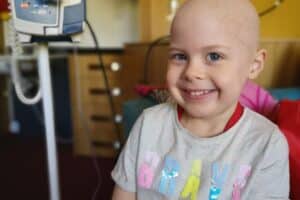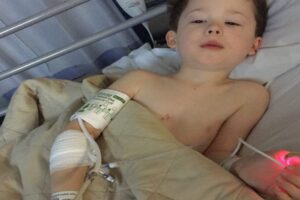Kira’s Story: Living with Neuroblastoma
Kira was diagnosed with neuroblastoma in 2014 when she was just 11 years old. She and her mum, Aud, share their journey of hope and resilience.
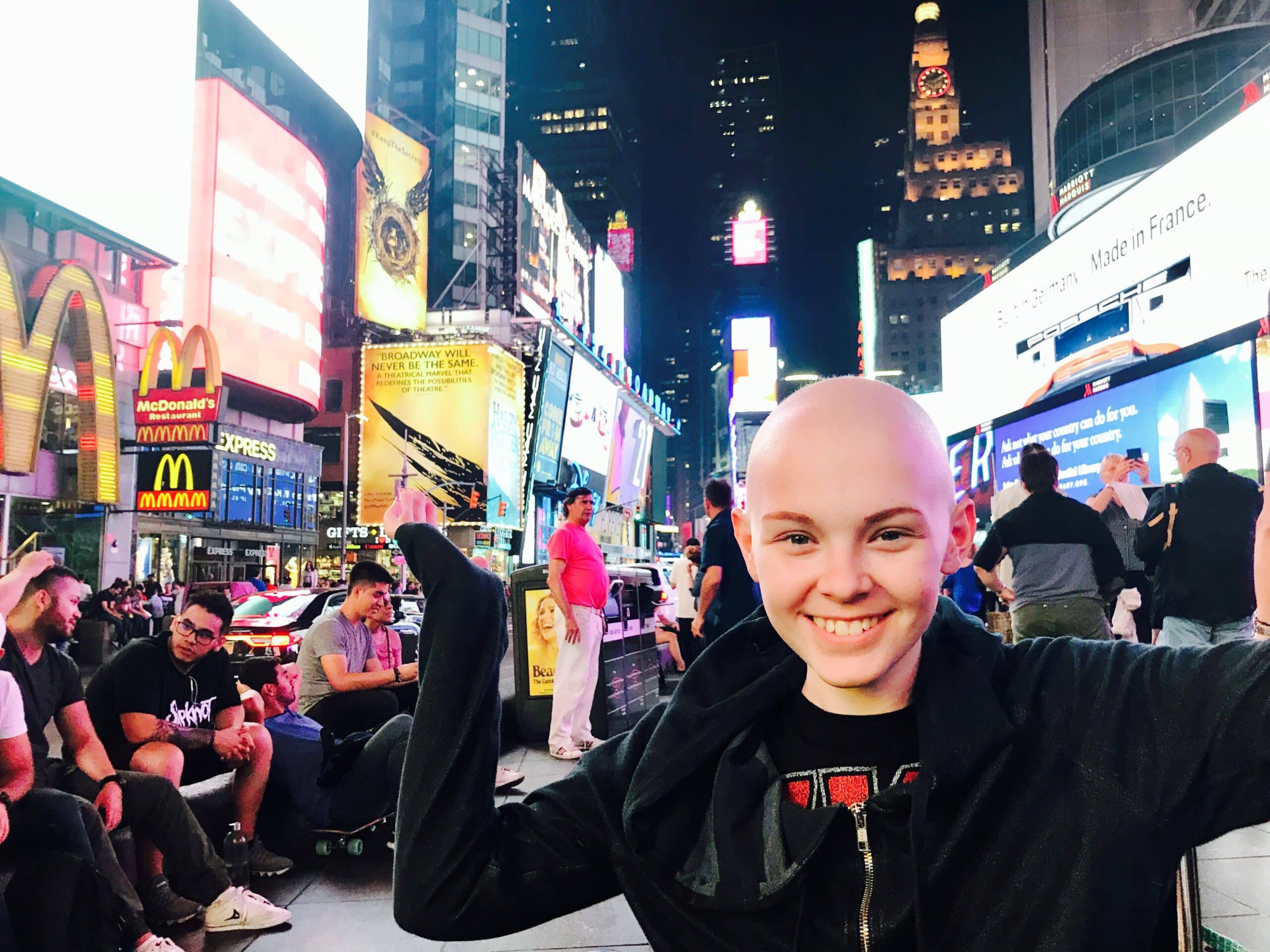
An Unexpected Discovery
When Kira was 11, doctors found a mass the size of a watermelon in her abdomen. It was neuroblastoma, a rare cancer more commonly seen in children under five. The diagnosis changed everything.
11 Years of Fighting Back
Over the next 11 years, Kira faced treatments including chemotherapy, surgery, radiotherapy, and a stem cell transplant. Her cancer returned eight times. When doctors said a growing tumour wrapped around major blood vessels was too dangerous to remove, her family refused to give up. Through community support and donations, they travelled to a specialist surgeon in New York who successfully removed it.
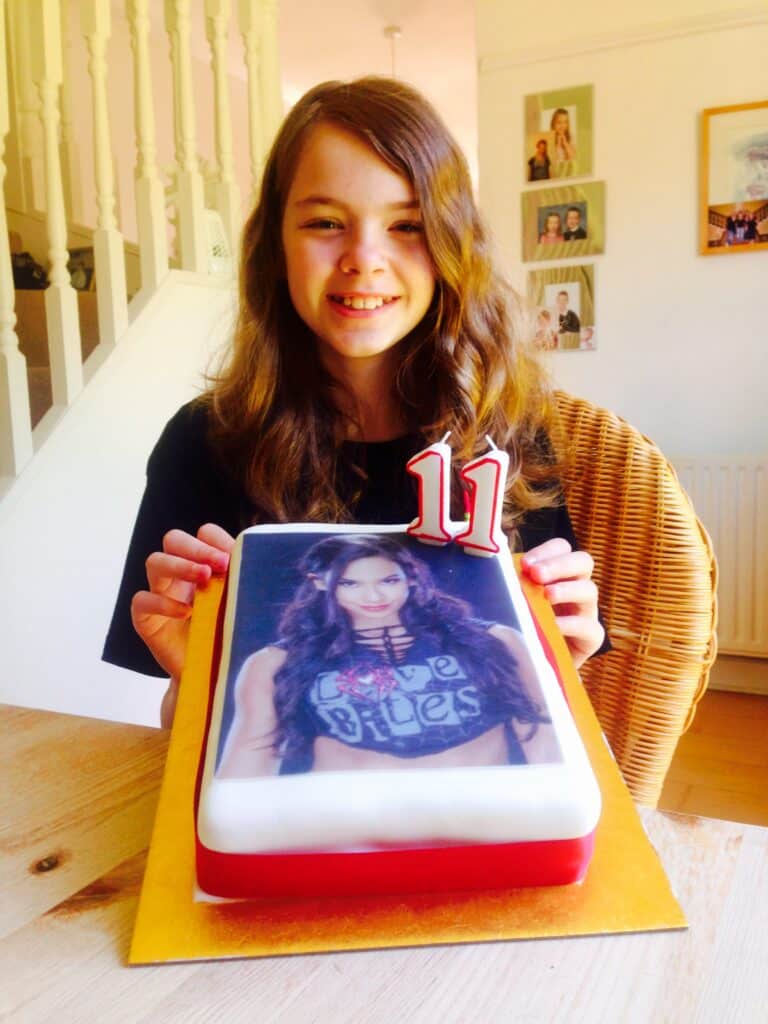
Finding Hope Through Innovation
After treatment in America in 2018, scans showed Kira’s cancer had spread to multiple locations within her abdomen. But Kira was determined. She became one of the first UK children to try a new targeted therapy called Lorlatinib, combined with cutting-edge blood testing that tracked her cancer in real-time.
Additional Treatment
Kira’s cancer further relapsed at the end of 2021 and her liquid biopsy showed that the same ALK mutation remained but had increased in percentage in her bloodstream. It was crucial that Kira remained on the ALK inhibitor and add in an additional therapy such as chemoimmunotherapy.
Proton beam therapy had devastatingly not worked and Kira’s cancer continued to grow. Not only had it not worked, but the tumours had multiplied and spread.
Aud, Kira’s Mum
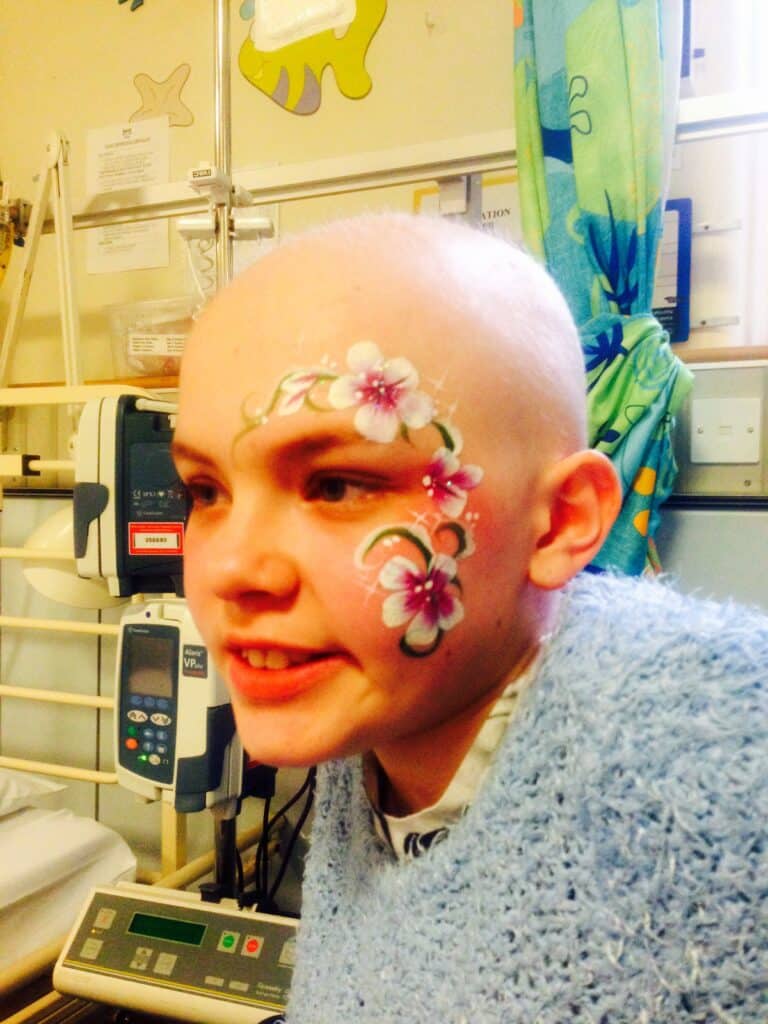
Living Life to the Fullest
After six months of treatment, the tumour became inactive, with no evidence of active disease on a scan. Kira has remained that way to date. Her blood tests continue to show her to be in sustained molecular remission since the beginning of 2022, which means that there are no detectable mutations in her circulating DNA. Over the past six years, Kira’s tracking of her ctDNA in her blood has correlated perfectly with her clinical course and imaging.
Now 21, Kira lives life on her own terms. Having faced cancer nine times has shaped her, but it hasn’t defined her.
I always squeeze the joy out of life.
Kira

Stratified Medicine Paediatrics (SMPaeds1) programme
Kira enrolled on SMPaeds Serial Blood Testing, which tracked her response to treatment alongside targeted cancer treatment. She was one of the first children in the UK to receive this serial blood testing alongside Lorlatinib.
SMPaeds1 aims to advance precision medicine for children and young people whose cancer has returned. This treatment focuses on analysing childhood cancer tumours at diagnosis and relapse stages of the cancer journey, to help better understand how the tumours evolve.
The research team from The Institute of Cancer Research, London introduced the use of ctDNA, DNA that is released into the bloodstream circulation by cancer cells, as a potential tool for tracking cancer progression and identifying new treatment targets. The ctDNA test offers a less invasive way to monitor how tumour mutations change over time and can add additional information that is complimentary to tissue biopsy.
Support from Children with Cancer UK
We are hugely grateful to Children with Cancer UK for investing invaluable funds into SMPaeds Serial Blood Testing for all children with relapsed cancers and believe it will make a positive difference to outcomes for children living with cancer. Thank you to Children with Cancer UK and to their supporters for all they have done and continue to do. Kira’s story is an important example of precision medicine having the desired effect on cancer and allowing her to live life as a typical 21-year-old.
Kira and Aud, March 2025
How you can help
If you’ve been touched by Kira’s journey, help us invest in the high-quality research that really matters, which would otherwise go unfunded. This helps to support children with cancer so they can be with their families for longer.
Have you or a family member been affected by childhood cancer?
Many of our supporters have been affected by childhood cancer – either through family, friends or their own personal experience. These patient stories can help inspire others to get involved with us, or can support our media work. If you have a story that you would like to tell,
